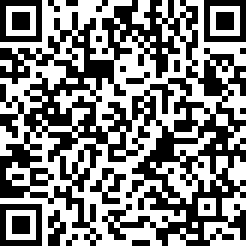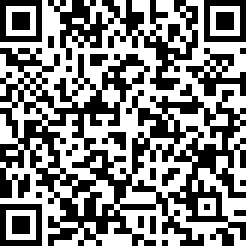Key Takeaways
Mindful drinking at Christmas isn't about restriction or perfection. It's about staying conscious enough to actually enjoy the parts of the holidays that matter to you.
Your brain interprets holiday stress (family dynamics, financial pressure, social overload) as a reason to reach for alcohol, but alcohol actually makes emotional regulation harder, not easier.
Small shifts create big changes: alternating drinks with water, eating protein before events, and checking in with yourself before refills can transform your experience without feeling like deprivation.
Picture this: It's December 26th. You're lying in bed with a headache that feels like someone's using your skull as a drum. Your mouth tastes like a small rodent died in it. You have vague memories of telling your uncle exactly what you think about his political views, and you're pretty sure you ugly-cried at some point. Your phone has 47 messages you're too scared to open.
Sound familiar?
Christmas is supposed to be magical. Instead, it often feels like a monthlong emotional gauntlet where alcohol becomes the coping mechanism for everything: awkward family dinners, work parties with people you barely tolerate, financial stress, social overload, and the general chaos of pretending everything is merry and bright when you're actually exhausted and broke.
Here's the truth: mindful drinking at Christmas isn't about becoming a joyless robot who nurses one glass of wine all night. It's about staying present enough to actually experience the good parts, the connection, the laughter, the moments you'll want to remember instead of trying to piece together from someone else's Instagram stories.
This isn't a lecture about sobriety. It's a practical guide to navigating holiday alcohol without losing yourself in the process.
Why Christmas Turns Us Into Different Drinkers
Let's be honest: you probably drink differently during the holidays than you do the rest of the year. It's not just you. Research shows alcohol consumption increases by about 20-30% during the festive season. But why?
The Perfect Storm of Holiday Triggers
Christmas creates a unique cocktail (pun intended) of psychological and social pressures that make drinking feel both inevitable and necessary:
- You're suddenly expected to attend multiple events, many with people you wouldn't choose to spend time with otherwise. Alcohol becomes the social lubricant that makes small talk with Carol from accounting bearable.
- Nothing tests your emotional regulation quite like three days with your family. Old patterns resurface, buttons get pushed, and suddenly that glass of wine isn't just a beverage, it's a survival tool.
- We give ourselves permission to abandon our usual boundaries. Those drinking habits you've been moderating all year? Suddenly they don't count because "it's the holidays."
- You're suddenly expected to attend multiple events, many with people you wouldn't choose to spend time with otherwise. Alcohol becomes the social lubricant that makes small talk with Carol from accounting bearable.
- Nothing tests your emotional regulation quite like three days with your family. Old patterns resurface, buttons get pushed, and suddenly that glass of wine isn't just a beverage, it's a survival tool.
But here's what nobody tells you: the alcohol that's supposed to make everything better often makes everything worse. It just does it gradually enough that you don't notice until Boxing Day when you're staring at the ceiling wondering why you feel so terrible.
The Real Cost of Holiday "Celebration"
Let's talk about what actually happens when holiday drinking stops being mindful and starts being automatic.
The Physical Toll
Here's what alcohol does and how it shows up during Christmas.
crashes it
The Emotional Fallout
Here's where it gets real: alcohol is a depressant. While it might give you a temporary mood boost, it fundamentally disrupts your brain's ability to regulate emotions. During the holidays, when you're already emotionally stretched, this matters more than usual.
Post-drinking anxiety (what some people call "hangxiety") isn't just in your head. When alcohol leaves your system, it creates a rebound effect where your nervous system goes into overdrive. Suddenly, everything you said or did feels mortifying. That text you sent? Horrifying. The way you laughed too loud? Everyone definitely noticed and judged you.
The guilt after drinking at Christmas parties isn't about being weak or dramatic. It's your brain chemistry recovering from a substance that temporarily altered how you process and respond to stress.
The Memory Gap
One of the sneakiest costs of holiday drinking? You're not actually present for the moments you wanted to create. You might physically be there, but parts of the evening exist only in fragmented memories. That beautiful conversation with your cousin? Half of it is gone. Your kid's face when they opened their present? You remember you were happy, but the details are fuzzy.
Mindful drinking means you get to keep your memories intact. You're there for the whole experience, not just the highlights reel your brain managed to record.
What Mindful Drinking Actually Means (And What It Doesn't)
Let's clear something up: mindful drinking at Christmas doesn't mean you become the person at the party explaining to everyone why alcohol is poison and they should all be drinking kombucha.
- Making conscious choices about when, what, and how much you drink
- Staying present enough to check in with yourself throughout the night
- Drinking because you genuinely want to, not because you're on autopilot, peer pressure, or trying to escape discomfort
- Creating space between the impulse to drink and the action of drinking
- Perfection or rigid rules
- Never drinking at all (unless that's your choice)
- Judging other people's choices
- Turning the holidays into a performance of how "good" you're being
Mindful drinking is about freedom and choice, not restriction and control. It's the difference between reaching for a glass because you actually want it versus reaching for a glass because it's there, because everyone else is, or because you're trying to manage anxiety you don't want to feel.
Think of it like this: you already practice mindfulness in other areas. You don't eat everything put in front of you just because it's there. You don't say yes to every invitation. You make choices based on what actually serves you. Mindful drinking is the same thing, just applied to alcohol.
The Neuroscience of Why Everything Feels Extra at Christmas
Your Brain on Holiday Stress
Your brain doesn't differentiate between types of stress. Whether you're being chased by a bear or navigating your in-laws' passive-aggressive comments about your life choices, your amygdala (your brain's threat detection center) activates the same stress response.
Alcohol temporarily dampens your amygdala's activity. That's why it feels like it's helping. You take a drink, and suddenly the edge comes off. The problem? Your brain adapts. It starts requiring more alcohol to achieve the same calming effect. And when the alcohol wears off, your stress response rebounds harder than before.
The Dopamine Trap
Alcohol triggers dopamine release in your brain's reward center. Dopamine isn't about pleasure, exactly. It's about motivation and anticipation. It's the "I want that" neurochemical.
This is why mindful drinking matters: you're not trying to fight your brain chemistry with willpower. You're creating new patterns by making conscious choices that interrupt the automatic loop.
Neuroplasticity: Your Secret Weapon
Here's the good news: your brain is constantly rewiring itself based on your experiences and behaviors. This is called neuroplasticity. Every time you pause before pouring another drink, every time you choose water instead of wine, every time you check in with yourself about what you actually need, you're building new neural pathways.
These pathways get stronger with repetition. The more you practice conscious choice, the more natural it becomes. You’re literally changing your brain’s default settings.
Your Toolkit: Practical Ways to Drink Less and Feel More
Enough theory. Let's talk about what actually works when you're standing in your colleague's kitchen at the office party, or when your family's doing their third round of toasts.
Before the Event: Set Yourself Up for Success
- Don't show up to a party hungry. Protein and fats slow alcohol absorption, stabilize blood sugar, and give you sustained energy. Think: eggs, nuts, avocado, full-fat yogurt. Not just crackers and cheese.
- Drink 16-20 ounces of water an hour before you leave. Add electrolytes if you can. Your brain needs proper hydration to function, and starting dehydrated makes everything harder.
- Instead of "I'm only having two drinks" (which your brain will rebel against), try: "I want to remember this whole night" or "I want to wake up feeling good tomorrow." Intentions work better than restrictions because they're about what you want, not what you're denying yourself.
- Know how you're getting home, and have a backup plan. Being able to leave when you're ready removes the pressure to keep drinking because you're stuck there.
During the Event: Stay Conscious
- One alcoholic drink, one full glass of water (not sips). Repeat. This isn't about diluting your fun. It's about giving your body and brain time to process. Alcohol hits differently when you're properly hydrated.
- Before you refill, wait five minutes. Not as a test of willpower, but as a genuine check-in: Am I actually enjoying this? Do I want another drink, or do I want something else (connection, food, fresh air, to go home)?
- This sounds simple, but it works. Hold a glass of sparkling water, a coffee, anything. It removes the automatic reach-and-refill pattern. Your brain loves having something to hold in social situations.
- Not just appetizers. Actual food with substance. Protein especially. This isn't about "lining your stomach." It's about maintaining stable blood sugar so your brain isn't screaming for quick energy (which alcohol provides temporarily).
- When you feel the urge to drink because you're anxious or overwhelmed:
- Notice your feet on the floor
- Take three deep breaths (exhale longer than you inhale)
- Find one thing you can see, hear, smell, taste, and touch
- Excuse yourself to the bathroom and splash cold water on your wrists
- These activate your parasympathetic nervous system (your "rest and digest" mode) and interrupt the stress-drink automatic response.
Great Non-Alcoholic Christmas Drinks
If you're looking for festive alternatives that don't feel like punishment, here are some non alcoholic Christmas drinks that actually taste good:
- (festive, refreshing, looks like a cocktail)
- (spiced apple or grape juice warmed with cinnamon, cloves, and orange)
- (same ritual, minus the hangover)
- (cozy, satisfying, genuinely delicious)
Order these first at parties to slow your holiday drinking pace, or keep them stocked at home so you always have a real alternative to reach for.
The Social Stuff: Handling Other People
When Someone Asks Why You're Not Drinking (Much)
You don't owe anyone an explanation, but having a few responses ready makes it easier:
The key: don't defend, don't explain, don't apologize. Keep it brief and redirect.
When You're the Host
Make it easy for people to drink less:
Have genuinely good non-alcoholic options (not just soda and juice)
Put water stations everywhere
Serve food throughout, not just at the beginning
Don't refill glasses automatically; let people come to you
Tools from the Unconscious Moderation App
If you're looking for additional support in shifting your holiday drinking habits, tools like hypnotherapy and journaling can help rewire the unconscious patterns driving your behavior.
The Unconscious Moderation app offers short guided hypnotherapy sessions designed to help you access the part of your brain where automatic behaviors live. Instead of relying on willpower (which is exhausting and often fails), hypnotherapy helps update your unconscious associations with alcohol. You might use a five-minute session before an event to anchor your intention, or do a brief check-in session if you feel the urge to drink escalating.
Daily prompts help you explore what's actually behind your drinking habits. During Christmas, this might look like:
- What am I trying to feel less of when I reach for a drink?
- What would I be experiencing if I wasn't numbing with alcohol?
- What do I actually need right now?
This isn't about fixing yourself. It's about understanding yourself. When you know what's driving the behavior, you can meet that need in ways that actually serve you.
What to Do When Everyone Else Is Three Glasses Deep
This is the hard part: staying mindful when the people around you aren't.
This is normal. It doesn't mean you're doing it wrong or being uptight. It means you're actually present while other people are numbing out.
- Go outside for fresh air and a reset
- Find the one other person who seems relatively sober and start a real conversation
- Shift to activities: suggest games, help in the kitchen, play with kids or pets
- Leave earlier than you usually would (this is not failing; this is choosing yourself)
You might look around and think: "Everyone else is having more fun than me."
Reality check: they might look like they're having fun, but you have no idea how they're going to feel tomorrow, what they're going to regret, what they're using alcohol to avoid feeling. You're seeing the performance, not the experience.
Your version of fun gets to be different. Your version gets to include remembering the whole night, waking up without regret, and feeling good in your body the next day.
The Morning-After Reality Check
That crushing feeling you get the morning after drinking isn't about morality. It's neurochemistry.
When alcohol leaves your system:
- Your cortisol (stress hormone) spikes
- Your serotonin (mood stabilizer) drops
- Your glutamate (excitatory neurotransmitter) rebounds
- Your nervous system shifts into overdrive
This mix creates the classic hangxiety spiral where everything feels terrible and your brain tries to find reasons why. It scans your memories looking for evidence that you screwed up. Even if you didn't.
The Hangover Isn't Just Physical
Yes, there's the headache and nausea. But the emotional hangover is often worse: the anxiety, the replaying conversations, the vague sense of dread, the feeling that something is wrong even when nothing specific happened.
This is your brain recovering from a depressant. It's temporary, but it's real. And it affects how you show up for yourself and other people for days after drinking.
Setting Yourself Up for January (Without the Guilt Trip)
The holidays don't have to be a total write-off that you "fix" in January. Mindful drinking at Christmas can actually serve as Dry January prep, setting you up for a January that feels like continuation, not emergency damage control.
Rethinking Dry January
Instead of thinking "I'll start being good in January," try implementing one or two small changes now:
- Check in with yourself before each drink: "Do I actually want this?"
- Alternate alcoholic drinks with water or other beverages
- Set a bedtime and stick to it (even at parties, you can leave)
- Journal for five minutes after social events: How do I actually feel? What worked? What didn't?
These tiny practices build the awareness muscle you need for lasting change. By January, they're already habits, not New Year's resolutions you're trying to force.
FAQs
Is mindful drinking just a trendy way of saying "drink less"?
Not exactly. Mindful drinking is about consciousness and choice, not quantity. You might have the same number of drinks but experience them completely differently because you're present for them instead of on autopilot.
How do I practice mindful drinking when alcohol is literally everywhere at Christmas?
Start small. Pick one event where you'll practice conscious drinking. Before you arrive, set an intention (not a rule). During the event, pause before each refill and check in: Do I want this, or am I just following the pattern? You don't have to be perfect at every holiday gathering. One conscious event builds the skill for the next.
What if I've already overdone it this holiday season?
You're reading this, which means you're aware and thinking about change. That's literally the first step. Instead of spiraling in guilt (which changes nothing), use this as information: How did you feel? What do you want to do differently? Start fresh at the next event. Every moment is a new choice.
Can hypnotherapy actually help with holiday drinking habits?
I'm worried I'll be boring if I drink less at parties.
Here's the thing: the version of you that needs three drinks to be interesting isn't actually more interesting. That's your anxiety talking, convinced that alcohol is making you funnier, more relaxed, more likable. But think about it: who do you actually enjoy talking to at parties? It's usually the people who are present, engaged, and able to hold a real conversation. Not the person slurring their words by 9pm. You being more conscious doesn't make you boring. It makes you real.
What's the difference between mindful drinking and moderation?
Moderation is about quantity: drinking less, having limits, staying under a certain number. Mindful drinking is about quality: being present, making conscious choices, checking in with yourself. You can practice mindful drinking and still drink moderately, or you can moderate without any real awareness (counting drinks but not understanding why you want them).
How do I handle family pressure to drink at Christmas gatherings?
Family dynamics are the hardest because old patterns run deep. A few strategies: Have your response ready before you arrive ("I'm pacing myself tonight"). Hold a non-alcoholic drink so you're not empty-handed. Redirect questions ("So how's work going?"). And remember: their discomfort with your choice is about them, not you. People feel threatened when you change because it forces them to examine their own behavior.
What if mindful drinking makes me realize I have a bigger issue with alcohol?
This is actually important: mindful drinking is about consciousness and choice for people who want to drink less and stay present. If you're finding that you can't stop at one or two drinks, that drinking is causing problems in your life, or that you're drinking to cope with trauma or mental health issues, that's different. That might be a signal to talk to a therapist or doctor who specializes in substance use. There's no shame in that. Getting support is strength, not failure.
Can I still enjoy Christmas if I'm drinking mindfully?
This is the big question everyone's really asking. And yes, absolutely. But your enjoyment will look different. You'll remember the whole night instead of fragments. You'll be present for real connection instead of performing fun. You'll wake up feeling good instead of wrecked. The question isn't whether you can enjoy Christmas drinking mindfully. It's whether the way you're drinking now is actually creating the experience you want.






